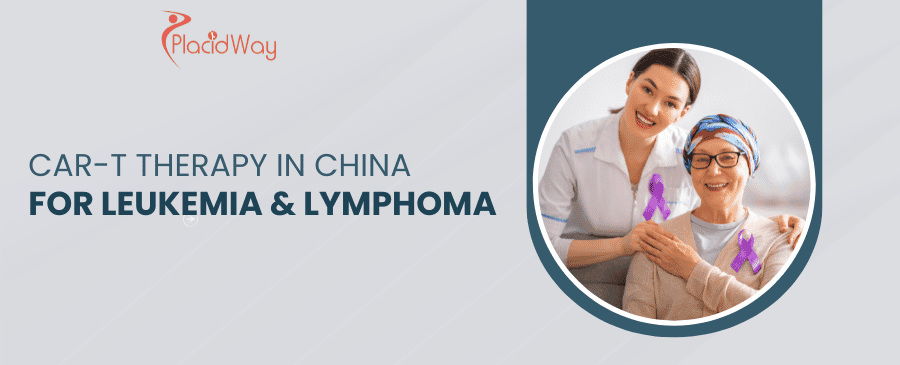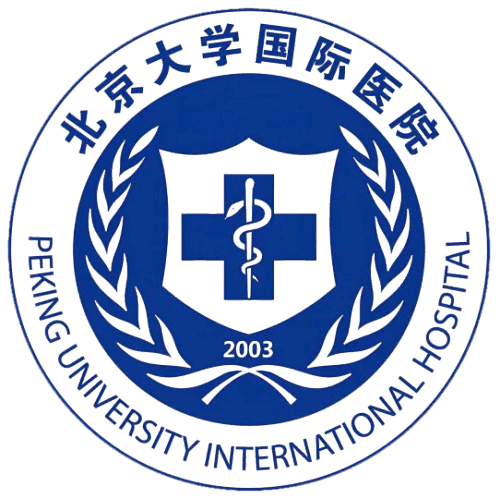
Chimeric Antigen Receptor T-cell (CAR-T) therapy has emerged as a groundbreaking approach in the treatment of leukemia and lymphoma. This innovative therapy harnesses the body’s immune system to target and destroy cancer cells. In China, CAR-T therapy has seen rapid advancements, making the country a leader in the global immunotherapy landscape. This article will explore how CAR-T therapy works, its application in leukemia and lymphoma treatment, and why China has become a hub for this cutting-edge treatment.
Key Insights at a Glance:
- Affordable: CAR-T in China costs under $50,000 vs. $350,000+ elsewhere.
- Effective: High remission rates for tough leukemia and lymphoma cases.
- Advanced: State-of-the-art labs and skilled specialists.
- Patient-Friendly: Dedicated support services for international patients.
- Innovative: Rapid progress and diverse treatment options.
Understanding CAR-T Therapy
At its core, CAR-T therapy is a form of personalized immunotherapy. It involves reprogramming a patient’s own T-cells—an essential component of the immune system—to recognize and attack cancer cells. The process is highly specialized, requiring sophisticated laboratory techniques and state-of-the-art medical facilities.
How CAR-T Therapy Works
-
Collecting T-Cells:
The treatment begins with a process called leukapheresis, where T-cells are extracted from the patient’s blood. These T-cells play a vital role in the immune response, but in cancer patients, they often fail to recognize or respond to malignant cells.
-
Genetic Modification:
In a laboratory setting, the extracted T-cells are genetically engineered to produce chimeric antigen receptors (CARs) on their surface. These synthetic receptors enable the T-cells to identify a specific protein, or antigen, present on the surface of cancer cells. For many cases of leukemia and lymphoma, the targeted antigen is CD19, a protein commonly found on the surface of malignant B-cells.
-
Expansion and Quality Control:
After modification, the CAR-T cells are expanded in large quantities. This ensures that there are enough reprogrammed cells to effectively combat the cancer. Rigorous quality control measures are taken during this phase to verify the cells’ functionality, safety, and purity.
-
Reinfusion into the Patient:
The modified and multiplied CAR-T cells are then infused back into the patient’s bloodstream. Once reinjected, these cells seek out and bind to cancer cells displaying the targeted antigen.
-
Attacking Cancer Cells:
The CAR-T cells unleash a potent immune response upon binding to the cancer cells. They release cytokines and other cytotoxic agents that lead to the destruction of the malignant cells. Over time, the CAR-T cells continue to patrol the body, targeting any residual cancer cells and reducing the likelihood of relapse.
Application of CAR-T Therapy in Leukemia and Lymphoma
CAR-T therapy has shown remarkable efficacy in treating certain types of leukemia and lymphoma, particularly in cases where conventional treatments, such as chemotherapy or bone marrow transplants, have failed. In China, CAR-T therapy is most commonly used for:
- Acute Lymphoblastic Leukemia (ALL):Pediatric and adult patients with relapsed or refractory ALL have responded well to CAR-T therapy, with many achieving complete remission.
- Diffuse Large B-Cell Lymphoma (DLBCL): This aggressive form of non-Hodgkin lymphoma has been successfully treated with CAR-T therapy, offering hope to patients who previously had limited options.
- Other B-Cell Malignancies: CAR-T therapy has also been extended to treat chronic lymphocytic leukemia (CLL) and other rare lymphomas, broadening its impact on hematologic cancers.
Why China Leads in CAR-T Therapy Development
China has rapidly become a global leader in CAR-T therapy research and clinical application. Several factors contribute to this rise:
Advanced Research and Development:
Chinese biotech firms and research institutions have invested heavily in developing CAR-T technologies. The country is home to numerous clinical trials exploring novel CAR constructs, combination therapies, and improved manufacturing techniques.
Government Support and Regulatory Approvals:
In recent years, China’s regulatory agencies have streamlined the approval process for innovative therapies, enabling faster access to CAR-T treatments. This has led to a surge in the availability of CAR-T products for both domestic and international patients.
Lower Treatment Costs:
Compared to the United States and Europe, CAR-T therapy in China is often more affordable. This is due to lower production costs, efficient manufacturing processes, and competitive pricing among local biotech companies. As a result, patients from around the world are increasingly seeking CAR-T therapy in China.
State-of-the-Art Medical Facilities:
Leading hospitals and cancer centers in China have established dedicated CAR-T units, equipped with the latest technology and staffed by experienced specialists. These facilities not only administer CAR-T therapy but also provide comprehensive patient support, from pre-treatment evaluations to post-treatment monitoring.
Cost Comparisons of CAR-T Therapy
One of the significant advantages of seeking CAR-T therapy in China is its relatively lower cost compared to treatments available in Western countries. Below is a general comparison table:
| Region | Average Cost of CAR-T Therapy | Notes |
|---|---|---|
| China | $30,000–$50,000 USD | More affordable due to local manufacturing and streamlined processes |
| United States | $373,000–$475,000 USD | Includes R&D costs and higher operational expenses |
| Europe | $350,000–$400,000 USD | Costs depend on specific countries and approval timelines |
Patient Remarks and Experiences
Many patients have shared their experiences undergoing CAR-T therapy in China, highlighting its effectiveness and the level of care they received.
For instance, a leukemia patient from South America noted, “After failing multiple rounds of chemotherapy, I came to China as a last resort. The medical team was professional, and within a few weeks of receiving CAR-T, I was in remission.”
Another patient from the Middle East mentioned, “Not only was the treatment affordable, but the hospital’s international department made the entire process smooth and stress-free.”
Challenges and Future Directions
While CAR-T therapy represents a revolutionary step forward, it is not without challenges. Some patients experience significant side effects, such as cytokine release syndrome (CRS) or neurotoxicity. Managing these adverse effects requires skilled medical teams and access to advanced supportive care.
Additionally, CAR-T therapy is not yet a universal solution. It currently works best for certain B-cell cancers, and ongoing research is needed to expand its application to other cancer types, including solid tumors.
Looking ahead, Chinese researchers are exploring next-generation CAR-T therapies, including “off-the-shelf” allogeneic CAR-T cells, dual-target CARs, and combination treatments with checkpoint inhibitors. These innovations aim to improve efficacy, reduce costs, and broaden the range of treatable cancers.
Frequently Asked Questions (FAQs) About CAR-T Therapy in China
What types of cancer can CAR-T therapy treat?
CAR-T therapy is primarily used for certain blood cancers like acute lymphoblastic leukemia (ALL) and diffuse large B-cell lymphoma (DLBCL).
How long does the CAR-T therapy process take?
From cell collection to reinfusion, the process typically takes several weeks. Some patients may need to wait longer depending on the complexity of the procedure.
Are there any side effects?
Common side effects include cytokine release syndrome (CRS), fever, fatigue, and in rare cases, neurological symptoms. These are usually managed with close medical monitoring and supportive care.
Why is CAR-T therapy less expensive in China?
Lower labor costs, local manufacturing of CAR-T cells, and government support contribute to reduced prices compared to Western countries.
Is CAR-T therapy in China safe?
Yes, many hospitals in China follow international protocols, have advanced facilities, and employ highly trained specialists.
What should I consider before traveling to China for CAR-T therapy?
Patients should consult with their primary oncologist, confirm the credentials of the hospital, and arrange for adequate follow-up care upon returning home.
How effective is CAR-T therapy?
Response rates are highly promising, with many patients achieving remission. However, long-term efficacy varies by individual case.
Do I need to repeat CAR-T therapy?
In most cases, CAR-T therapy is a one-time treatment. Follow-up care is critical to monitor for any recurrence or late-onset side effects.
Can CAR-T therapy be combined with other treatments?
In some cases, CAR-T therapy may be part of a comprehensive treatment plan, potentially combined with chemotherapy or targeted therapies.
How do I choose the right hospital in China for CAR-T therapy?
Look for facilities with a proven track record in CAR-T treatments, international accreditation, and English-speaking staff to ensure a smoother experience.
Why Choose PlacidWay for CAR-T Therapy in China?
- Trusted Global Medical Tourism Platform – PlacidWay connects international patients with top-quality healthcare providers in China.
- Personalized Guidance – Dedicated patient coordinators help you navigate the entire treatment process.
- Cost Transparency – Get clear information on treatment pricing without hidden fees.
- Accredited Medical Facilities – Partnering with well-established institutions that specialize in CAR-T therapy.
- Multi-Language Assistance – Overcoming language barriers with professional translation and interpretation services.
- Efficient Treatment Coordination – Faster appointment scheduling and streamlined communication with specialists.
- Post-Treatment Follow-Up – Continued support and medical consultation after returning home.
Take the Next Step Toward Life-Changing Cancer Treatment
If you or a loved one is considering CAR-T therapy in China, PlacidWay is here to guide you every step of the way. Our expert team will help you find the right treatment options, coordinate logistics, and ensure a smooth medical journey.Contact us today for a free consultation and explore how CAR-T therapy in China can help you on your road to recovery.


.png)


Share this listing